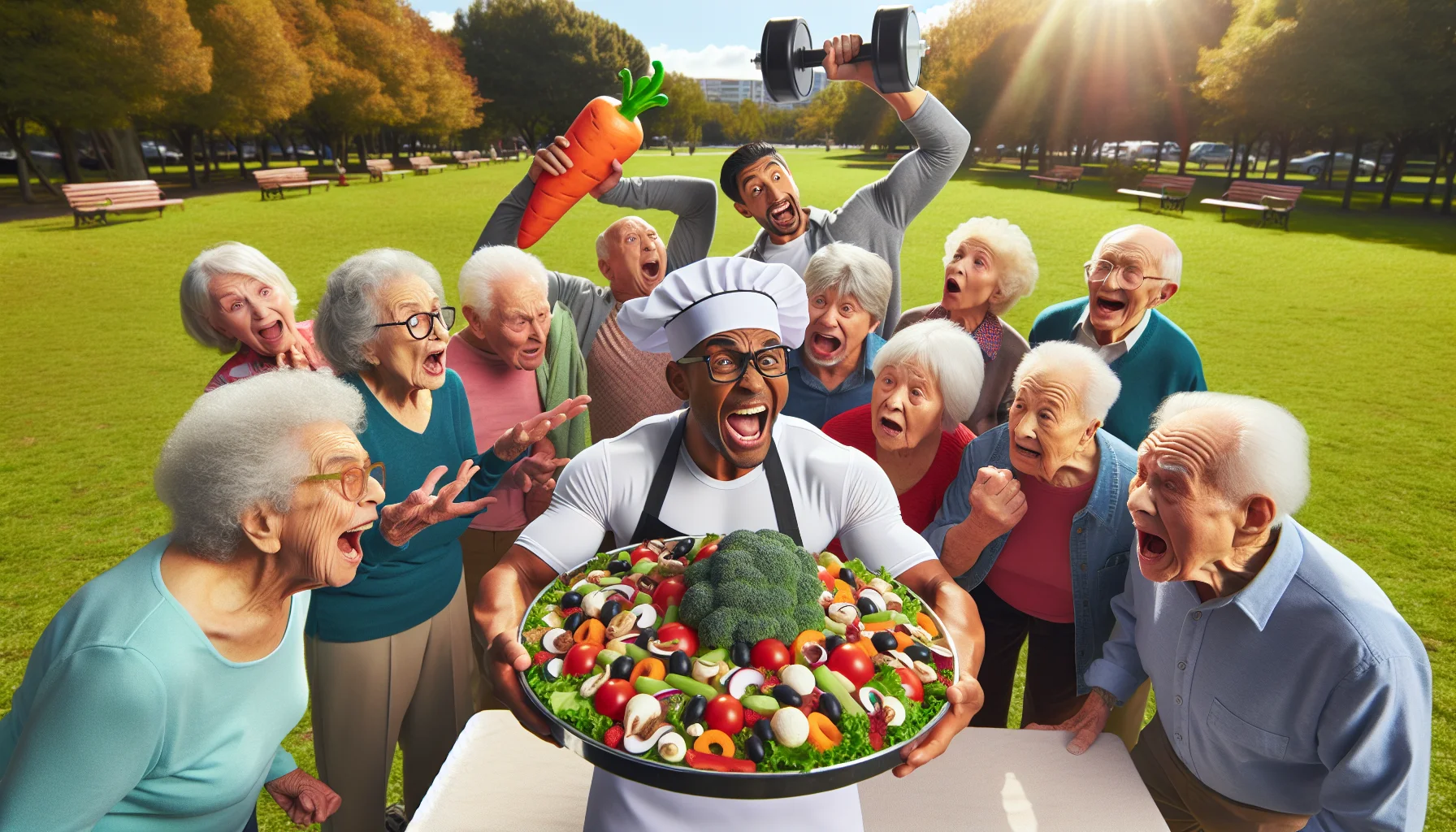Energizing Quiz
Test Your Knowledge
Question of
Understanding Energy-Boosting Diets
The Science of Energy and Nutrition
- How Food Converts to Energy
- Nutrients That Enhance Energy Levels
Components of an Energizing Diet
- Macronutrients for Sustained Energy
- Micronutrients and Their Role in Vitality
Debunking Myths About Energy Diets
- Common Misconceptions
- Evidence-Based Facts
Planning Your Energy-Enhancing Meals
Structuring a Balanced Daily Menu
Sample Meal Plans for Optimal Energy
Creating a daily menu that balances carbohydrates, proteins, and healthy fats can significantly impact your energy levels. Including a variety of fruits, vegetables, whole grains, lean proteins, and healthy fats in your meals can provide sustained energy throughout the day.
Timing Your Meals for Energy Efficiency
Eating smaller, more frequent meals can help maintain blood sugar levels, preventing the energy dips associated with large, heavy meals. Aim for three main meals and two snacks per day to keep your energy up.
Snacks That Boost Energy
Quick and Healthy Snack Ideas
- Almonds and other nuts
- Greek yogurt with berries
- Whole grain crackers with hummus
- Apple slices with peanut butter
Understanding the Glycemic Index of Snacks
Choosing snacks with a low glycemic index can help maintain energy levels by providing a slower, more consistent source of glucose to the bloodstream. This can prevent the rapid spikes and drops in blood sugar that can lead to fatigue.
Hydration and Its Impact on Energy Levels
The Importance of Water in Energy Diets
Water is crucial for nearly every bodily function, including energy production. Even mild dehydration can lead to feelings of tiredness and reduced alertness. Aim for at least 8 glasses of water a day to stay hydrated and energetic.
Signs of Dehydration to Watch For
- Thirst
- Dry mouth
- Fatigue
- Reduced urine output
- Dark yellow urine
Top Foods to Include in an Energizing Diet
Superfoods for Sustained Energy
Benefits of Superfoods
Superfoods are packed with vitamins, minerals, and antioxidants that provide your body with a boost of energy. They can improve overall health, reduce inflammation, and enhance your immune system.
How to Incorporate Superfoods into Your Diet
To incorporate superfoods into your diet, start by adding a variety of colorful fruits and vegetables to your meals. Include nuts, seeds, and legumes for an extra energy boost. Smoothies and salads are great ways to pack in several superfoods at once.
Whole Grains for Long-Lasting Energy
Types of Whole Grains to Eat
Whole grains like oats, quinoa, brown rice, and barley are excellent sources of complex carbohydrates, providing a steady release of energy throughout the day. They are also rich in fiber, which aids in digestion and keeps you feeling full longer.
Preparing Whole Grains for Maximum Benefit
To get the most benefit from whole grains, opt for whole, unprocessed grains and cook them in water or broth for a wholesome addition to any meal. Consider soaking grains like quinoa and barley before cooking to enhance their nutritional value and make them more digestible.
The Role of Proteins in Energy Maintenance
Best Protein Sources for Energy
Lean meats, fish, eggs, dairy products, beans, and nuts are all excellent sources of protein that can help maintain energy levels. These foods provide essential amino acids that your body needs to function properly and stay energized.
Balancing Protein Intake Throughout the Day
To ensure a steady supply of energy, it's important to balance your protein intake throughout the day. Include a source of protein in every meal and snack to help sustain your energy levels and support muscle repair and growth.
Managing Macronutrients for Energy
Carbohydrates: Fueling Your Body Right
- Understanding Different Types of Carbohydrates
- Choosing Carbs for Steady Energy Release
Fats: The Misunderstood Energy Source
- Healthy Fats vs. Unhealthy Fats
- Incorporating Healthy Fats into Your Diet
Protein's Role in Sustained Energy Levels
- Complete vs. Incomplete Proteins
- Vegetarian Sources of High-Energy Protein
Dietary Adjustments for Increased Vitality
-
Identifying and Eliminating Energy-Zapping Foods
- Foods That Cause Fatigue
- How to Detect Foods That Drain Your Energy
-
Adapting Your Diet for Physical Activity
- Pre-Workout Nutrition for Energy Boost
- Post-Workout Foods for Recovery and Recharge
-
Tailoring Your Diet as You Age
- Nutritional Needs in Different Life Stages
- Adjusting Caloric Intake for Age-Related Metabolic Changes
Special Diets and Their Energizing Effects
-
Vegetarian and Vegan Diets for Energy
- Plant-Based Foods High in Energy
- Meeting Nutritional Needs on a Plant-Based Diet
-
The Ketogenic Diet and Energy Levels
- How Ketosis Works as an Energy Source
- Managing the Transition to a Ketogenic Diet
-
Intermittent Fasting and Metabolic Energy
- Understanding the Principles of Intermittent Fasting
- Timing Your Eating Windows for Optimal Energy
Overcoming Common Challenges on an Energizing Diet
Dealing with Cravings and Energy Slumps
Strategies to Overcome Sugar Cravings
- Drink plenty of water to reduce cravings.
- Eat fruit to satisfy your sweet tooth with natural sugars.
- Include protein in your diet to help curb sugar cravings.
Tips for Maintaining Stable Energy Throughout the Day
- Consume small, frequent meals to keep your energy levels consistent.
- Choose whole grains over refined carbs for longer-lasting energy.
- Incorporate healthy fats and proteins into each meal.
Staying Energized on a Budget
Economical High-Energy Food Choices
- Opt for oats, beans, and lentils for affordable, energy-rich options.
- Buy seasonal fruits and vegetables for freshness and value.
- Consider eggs and canned fish as cost-effective protein sources.
Planning and Preparing Meals Cost-Effectively
- Meal prep in bulk to save time and money.
- Use leftovers creatively to avoid waste and keep meals interesting.
- Shop with a list to avoid impulse buys and stick to your budget.
Eating Out Without Sacrificing Energy Levels
Making Smart Menu Choices
- Look for dishes rich in vegetables, whole grains, and lean proteins.
- Avoid fried foods and heavy sauces that can lead to energy crashes.
- Choose water or herbal tea over sugary drinks to stay hydrated.
Navigating Social Situations and Food Choices
- Don’t be afraid to ask for customizations to your meal for healthier options.
- Share dishes to sample a variety without overeating.
- Focus on the social experience over the food to enjoy the occasion fully.












